|
Next up in our meet-the-host series is Kayla Craig. We had a great time talking to Kayla, and we laughed a lot - which is no surprise considering her history of improv acting, which we uncovered during the episode. #SNLherewecome
In a lot of ways, Kayla is the heart and sole of this operation. She's the one who gathered us as a writing group, and she's the one who threw out the idea of a podcast. We're all just little upside down Kayla ducklings, basically.
In all seriousness, Kayla is the youngest of the bunch but that doesn't keep her from leading with passion and drive. She's a careful thinker, a lover of justice, an orphan care advocate, and like she said about Lindsy last week, she's someone you definitely want on your team.
Kayla's a full-time journalist turned work-at-home mom (of four!) and author. You can find her recently published children's book, Just Really Joseph, here. In this episode we laugh about her accidental first date with her now-husband, whom she met in drama class in high school. We loved their engagement story and cracked up at the fact that they're BOTH ENFPs. (As a fellow ENFP I cannot imagine. I bet their house would be crazy loud and fun even WITHOUT their 4 kids. Somebody send the Craig household an introvert, STAT.) You can find Kayla on Instagram and check out her Just Really Joseph account here. While you're at it, head to the Upside Down Podcast account and let us know what other questions you have for her! Grab some headphones and settle in for this fun episode with our fearless Kayla. With love from a surprisingly warm Asheville, Kristi
0 Comments
Today, we reflect on the work and life of Martin Luther King, Jr.
There's so much we could say -- so much we take away -- from many of Dr. King's sermons, speeches, and illustrations. But we all have found ourselves going back to a letter he wrote to fellow ministers and pastors, in response to them saying "Well..." in regards to his involvement in nonviolent protests against racial injustice. Dr. King's words are much more than just a few memes or out-of-context quotables. We want to honor his thoughts in their entirety, so today, we're sharing his Letter from a Birmingham Jail. Please carve out some time to read and digest his exhortation to ministry leaders. I'm convicted and cut to the heart as I read so much of this, and I believe you will be, too. The upside-down way of life is often uncomfortable -- and more beautiful than we can imagine. I'll end this intro the way Dr. King signs off in his letter: "Let us all hope that the dark clouds of racial prejudice will soon pass away and the deep fog of misunderstanding will be lifted from our fear-drenched communities, and in some not too distant tomorrow the radiant stars of love and brotherhood will shine over our great nation with all their scintillating beauty." Kayla -- April 16, 1963 MY DEAR FELLOW CLERGYMEN: I think I should indicate why I am here in Birmingham, since you have been influenced by the view which argues against “outsiders coming in.” I have the honor of serving as president of the Southern Christian Leadership Conference, an organization operating in every Southern state, with headquarters in Atlanta, Georgia. We have some eighty-five affiliated organizations across the South, and one of them is the Alabama Christian Movement for Human Rights. Frequently we share staff, educational and financial resources with our affiliates. Several months ago the affiliate here in Birmingham asked us to be on call to engage in a nonviolent direct-action program if such were deemed necessary. We readily consented, and when the hour came we lived up to our promise. So I, along with several members of my staff, am here because I was invited here. I am here because I have organizational ties here. But more basically, I am in Birmingham because injustice is here. Just as the prophets of the eighth century B.C. left their villages and carried their "thus saith the Lord" far beyond the boundaries of their home towns: and just as the Apostle Paul left his village of Tarsus and carried the gospel of Jesus Christ to the far corners of of the Greco-Roman world, so am I compelled to carry the gospel of freedom far beyond my own hometown. Like Paul, I must constantly respond to the Macedonian call for aid. Moreover, I am cognizant of the interrelatedness of all communities and states. I cannot sit idly by in Atlanta and not be concerned about what happens in Birmingham. Injustice anywhere is a threat to justice everywhere. We are caught in an inescapable network of mutuality, tied in a single garment of destiny. Whatever affects one directly, affects all indirectly. Never again can we afford to live with the narrow, provincial “outside agitator” idea. Anyone who lives inside the United States can never be considered an outsider anywhere within its bounds. You deplore the demonstrations taking place in Birmingham. But your statement, I am sorry to say, fails to express a similar concern for the conditions that brought about the demonstrations. I am sure that none of you would want to rest content with the superficial kind of social analysis that deals merely with effects and does not grapple with underlying causes. It is unfortunate that demonstrations are taking place in Birmingham, but it is even more unfortunate that the city's white power structure left the Negro community with no alternative. In any nonviolent campaign there are four basic steps: collection of the facts to determine whether injustices exist; negotiation; self-purification; and direct action. We have gone through all of these steps in Birmingham. There can be no gainsaying the fact that racial injustice engulfs this community. Birmingham is probably the most thoroughly segregated city in the United States. Its ugly record of brutality is widely known. Negroes have experienced grossly unjust treatment in the courts. There have been more unsolved bombings of Negro homes and churches in Birmingham than in any other city in the nation. These are the hard, brutal facts of the case. On the basis of these conditions, Negro leaders sought to negotiate with the city fathers. But the latter consistently refused to engage in good-faith negotiation. Then, last September, came the opportunity to talk with leaders of Birmingham's economic community. In the course of the negotiations, certain promises were made by the merchants—for example, to remove the stores' humiliating racial signs. On the basis of these promises, the Reverend Fred Shuttlesworth and the leaders of the Alabama Christian Movement for Human Rights agreed to a moratorium on all demonstrations. As the weeks and months went by, we realized that we were the victims of a broken promise. A few signs, briefly removed, returned; the others remained. As in so many past experiences, our hopes had been blasted, and the shadow of deep disappointment settled upon us. We had no alternative except to prepare for direct action, whereby we would present our very bodies as a means of laying our case before the conscience of the local and the national community. Mindful of the difficulties involved, we decided to undertake a process of self-purification. We began a series of workshops on nonviolence, and we repeatedly asked ourselves: "Are you able to accept blows without retaliating?" "Are you able to endure the ordeal of jail?" We decided to schedule our direct-action program for the Easter season, realizing that except for Christmas, this is the main shopping period of the year. Knowing that a strong economic-withdrawal program would be the by-product of direct action, we felt that this would be the best time to bring pressure to bear on the merchants for the needed change. Then it occurred to us that Birmingham's mayoralty election was coming up in March, and we speedily decided to postpone action until after election day. When we discovered that the Commissioner of Police Safety, Eugene "Bull" Connor, had piled up enough votes to be in the run-off, we decided again to postpone action until the day after the run-off so that the demonstrations could not be used to cloud the issues. Like many others, we waited to see Mr. Connor defeated, and to this end we endured postponement after postponement. Having aided in this community need, we felt that our direct-action program could be delayed no longer. You may well ask: "Why direct action? Why sit-ins, marches and so forth? Isn't negotiation a better path?" You are quite right in calling for negotiation. Indeed, this is the very purpose of direct action. Nonviolent direct action seeks to create such a crisis and foster such a tension that a community which has constantly refused to negotiate is forced to confront the issue. It seeks to so dramatize the issue that it can no longer be ignored. My citing the creation of tension as part of the work of the nonviolent-resister may sound rather shocking. But I must confess that I am not afraid of the word "tension." I have earnestly opposed violent tension, but there is a type of constructive, nonviolent tension which is necessary for growth. Just as Socrates felt that it was necessary to create a tension in the mind so that individuals could rise from the bondage of myths and half-truths to the unfettered realm of creative analysis and objective appraisal, so must we see the need for nonviolent gadflies to create the kind of tension in society that will help men rise from the dark depths of prejudice and racism to the majestic heights of understanding and brotherhood. The purpose of our direct-action program is to create a situation so crisis-packed that it will inevitably open the door to negotiation. I therefore concur with you in your call for negotiation. Too long has our beloved Southland been bogged down in a tragic effort to live in monologue rather than dialogue. One of the basic points in your statement is that the action that I and my associates have taken in Birmingham is untimely. Some have asked: "Why didn't you give the new city administration time to act?" The only answer that I can give to this query is that the new Birmingham administration must be prodded about as much as the outgoing one, before it will act. We are sadly mistaken if we feel that the election of Albert Boutwell as mayor will bring the millennium to Birmingham. While Mr. Boutwell is a much more gentle person than Mr. Connor, they are both segregationists, dedicated to maintenance of the status quo. I have hope that Mr. Boutwell will be reasonable enough to see the futility of massive resistance to desegregation. But he will not see this without pressure from devotees of civil rights. My friends, I must say to you that we have not made a single gain in civil rights without determined legal and nonviolent pressure. Lamentably, it is an historical fact that privileged groups seldom give up their privileges voluntarily. Individuals may see the moral light and voluntarily give up their unjust posture; but, as Reinhold Niebuhr has reminded us, groups tend to be more immoral than individuals. We know through painful experience that freedom is never voluntarily given by the oppressor; it must be demanded by the oppressed. Frankly, I have yet to engage in a direct-action campaign that was "well timed" in the view of those who have not suffered unduly from the disease of segregation. For years now I have heard the word "Wait!" It rings in the ear of every Negro with piercing familiarity. This "Wait" has almost always meant "Never." We must come to see, with one of our distinguished jurists, that “justice too long delayed is justice denied.” We have waited for more than 340 years for our constitutional and God-given rights. The nations of Asia and Africa are moving with jetlike speed toward gaining political independence, but we stiff creep at horse-and-buggy pace toward gaining a cup of coffee at a lunch counter. Perhaps it is easy for those who have never felt the stinging darts of segregation to say, "Wait." But when you have seen vicious mobs lynch your mothers and fathers at will and drown your sisters and brothers at whim; when you have seen hate-filled policemen curse, kick and even kill your black brothers and sisters; when you see the vast majority of your twenty million Negro brothers smothering in an airtight cage of poverty in the midst of an affluent society; when you suddenly find your tongue twisted and your speech stammering as you seek to explain to your six-year-old daughter why she can't go to the public amusement park that has just been advertised on television, and see tears welling up in her eyes when she is told that Funtown is closed to colored children, and see ominous clouds of inferiority beginning to form in her little mental sky, and see her beginning to distort her personality by developing an unconscious bitterness toward white people; when you have to concoct an answer for a five-year-old son who is asking: "Daddy, why do white people treat colored people so mean?"; when you take a cross-country drive and find it necessary to sleep night after night in the uncomfortable corners of your automobile because no motel will accept you; when you are humiliated day in and day out by nagging signs reading "white" and "colored"; when your first name becomes "nigger," your middle name becomes "boy" (however old you are) and your last name becomes "John," and your wife and mother are never given the respected title "Mrs."; when you are harried by day and haunted by night by the fact that you are a Negro, living constantly at tiptoe stance, never quite knowing what to expect next, and are plagued with inner fears and outer resentments; when you go forever fighting a degenerating sense of "nobodiness"–then you will understand why we find it difficult to wait. There comes a time when the cup of endurance runs over, and men are no longer willing to be plunged into the abyss of despair. I hope, sirs, you can understand our legitimate and unavoidable impatience. You express a great deal of anxiety over our willingness to break laws. This is certainly a legitimate concern. Since we so diligently urge people to obey the Supreme Court's decision of 1954 outlawing segregation in the public schools, at first glance it may seem rather paradoxical for us consciously to break laws. One may well ask: “How can you advocate breaking some laws and obeying others?” The answer lies in the fact that there are two types of laws: just and unjust. I would be the first to advocate obeying just laws. One has not only a legal but a moral responsibility to obey just laws. Conversely, one has a moral responsibility to disobey unjust laws. I would agree with St. Augustine that “an unjust law is no law at all.” Now, what is the difference between the two? How does one determine whether a law is just or unjust? A just law is a man-made code that squares with the moral law or the law of God. An unjust law is a code that is out of harmony with the moral law. To put it in the terms of St. Thomas Aquinas: An unjust law is a human law that is not rooted in eternal law and natural law. Any law that uplifts human personality is just. Any law that degrades human personality is unjust. All segregation statutes are unjust because segregation distorts the soul and damages the personality. It gives the segregator a false sense of superiority and the segregated a false sense of inferiority. Segregation, to use the terminology of the Jewish philosopher Martin Buber, substitutes an "I-it" relationship for an "I-thou" relationship and ends up relegating persons to the status of things. Hence segregation is not only politically, economically and sociologically unsound, it is morally wrong and awful. Paul Tillich has said that sin is separation. Is not segregation an existential expression of man's tragic separation, his awful estrangement, his terrible sinfulness? Thus it is that I can urge men to obey the 1954 decision of the Supreme Court, for it is morally right; and I can urge them to disobey segregation ordinances, for they are morally wrong. Let us consider a more concrete example of just and unjust laws. An unjust law is a code that a numerical or power majority group compels a minority group to obey but does not make binding on itself. This is difference made legal. By the same token, a just law is a code that a majority compels a minority to follow and that it is willing to follow itself. This is sameness made legal. Let me give another explanation. A law is unjust if it is inflicted on a minority that, as a result of being denied the right to vote, had no part in enacting or devising the law. Who can say that the legislature of Alabama which set up that state's segregation laws was democratically elected? Throughout Alabama all sorts of devious methods are used to prevent Negroes from becoming registered voters, and there are some counties in which, even though Negroes constitute a majority of the population, not a single Negro is registered. Can any law enacted under such circumstances be considered democratically structured? Sometimes a law is just on its face and unjust in its application. For instance, I have been arrested on a charge of parading without a permit. Now, there is nothing wrong in having an ordinance which requires a permit for a parade. But such an ordinance becomes unjust when it is used to maintain segregation and to deny citizens the First Amendment privilege of peaceful assembly and protest. I hope you are able to see the distinction I am trying to point out. In no sense do I advocate evading or defying the law, as would the rabid segregationist. That would lead to anarchy. One who breaks an unjust law must do so openly, lovingly, and with a willingness to accept the penalty. I submit that an individual who breaks a law that conscience tells him is unjust. and who willingly accepts the penalty of imprisonment in order to arouse the conscience of the community over its injustice, is in reality expressing the highest respect for law. Of course, there is nothing new about this kind of civil disobedience. It was evidenced sublimely in the refusal of Shadrach, Meshach and Abednego to obey the laws of Nebuchadnezzar, on the ground that a higher moral law was at stake. It was practiced superbly by the early Christians, who were willing to face hungry lions and the excruciating pain of chopping blocks rather than submit to certain unjust laws of the Roman Empire. To a degree, academic freedom is a reality today because Socrates practiced civil disobedience. In our own nation, the Boston Tea Party represented a massive act of civil disobedience. We should never forget that everything Adolf Hitler did in Germany was "legal" and everything the Hungarian freedom fighters did in Hungary was "illegal." It was "illegal" to aid and comfort a Jew in Hitler's Germany. Even so, I am sure that, had I lived in Germany at the time, I would have aided and comforted my Jewish brothers. If today I lived in a Communist country where certain principles dear to the Christian faith are suppressed, I would openly advocate disobeying that country's antireligious laws. I must make two honest confessions to you, my Christian and Jewish brothers. First, I must confess that over the past few years I have been gravely disappointed with the white moderate. I have almost reached the regrettable conclusion that the Negro's great stumbling block in his stride toward freedom is not the White Citizen's Counciler or the Ku Klux Klanner, but the white moderate, who is more devoted to "order" than to justice; who prefers a negative peace which is the absence of tension to a positive peace which is the presence of justice; who constantly says: "I agree with you in the goal you seek, but I cannot agree with your methods of direct action"; who paternalistically believes he can set the timetable for another man's freedom; who lives by a mythical concept of time and who constantly advises the Negro to wait for a "more convenient season." Shallow understanding from people of good will is more frustrating than absolute misunderstanding from people of ill will. Lukewarm acceptance is much more bewildering than outright rejection. I had hoped that the white moderate would understand that law and order exist for the purpose of establishing justice and that when they fail in this purpose they become the dangerously structured dams that block the flow of social progress. I had hoped that the white moderate would understand that the present tension in the South is a necessary phase of the transition from an obnoxious negative peace, in which the Negro passively accepted his unjust plight, to a substantive and positive peace, in which all men will respect the dignity and worth of human personality. Actually, we who engage in nonviolent direct action are not the creators of tension. We merely bring to the surface the hidden tension that is already alive. We bring it out in the open, where it can be seen and dealt with. Like a boil that can never be cured so long as it is covered up but must be opened with all its ugliness to the natural medicines of air and light, injustice must be exposed, with all the tension its exposure creates, to the light of human conscience and the air of national opinion before it can be cured. In your statement you assert that our actions, even though peaceful, must be condemned because they precipitate violence. But is this a logical assertion? Isn't this like condemning a robbed man because his possession of money precipitated the evil act of robbery? Isn't this like condemning Socrates because his unswerving commitment to truth and his philosophical inquiries precipitated the act by the misguided populace in which they made him drink hemlock? Isn't this like condemning Jesus because his unique God-consciousness and never-ceasing devotion to God's will precipitated the evil act of crucifixion? We must come to see that, as the federal courts have consistently affirmed, it is wrong to urge an individual to cease his efforts to gain his basic constitutional rights because the quest may precipitate violence. Society must protect the robbed and punish the robber. I had also hoped that the white moderate would reject the myth concerning time in relation to the struggle for freedom. I have just received a letter from a white brother in Texas. He writes: "All Christians know that the colored people will receive equal rights eventually, but it is possible that you are in too great a religious hurry. It has taken Christianity almost two thousand years to accomplish what it has. The teachings of Christ take time to come to earth." Such an attitude stems from a tragic misconception of time, from the strangely rational notion that there is something in the very flow of time that will inevitably cure all ills. Actually, time itself is neutral; it can be used either destructively or constructively. More and more I feel that the people of ill will have used time much more effectively than have the people of good will. We will have to repent in this generation not merely for the hateful words and actions of the bad people but for the appalling silence of the good people. Human progress never rolls in on wheels of inevitability; it comes through the tireless efforts of men willing to be co-workers with God, and without this hard work, time itself becomes an ally of the forces of social stagnation. We must use time creatively, in the knowledge that the time is always ripe to do right. Now is the time to make real the promise of democracy and transform our pending national elegy into a creative psalm of brotherhood. Now is the time to lift our national policy from the quicksand of racial injustice to the solid rock of human dignity. You speak of our activity in Birmingham as extreme. At first I was rather disappointed that fellow clergymen would see my nonviolent efforts as those of an extremist. I began thinking about the fact that I stand in the middle of two opposing forces in the Negro community. One is a force of complacency, made up in part of Negroes who, as a result of long years of oppression, are so drained of self-respect and a sense of "somebodiness" that they have adjusted to segregation; and in part of a few middle class Negroes who, because of a degree of academic and economic security and because in some ways they profit by segregation, have become insensitive to the problems of the masses. The other force is one of bitterness and hatred, and it comes perilously close to advocating violence. It is expressed in the various black nationalist groups that are springing up across the nation, the largest and best-known being Elijah Muhammad's Muslim movement. Nourished by the Negro's frustration over the continued existence of racial discrimination, this movement is made up of people who have lost faith in America, who have absolutely repudiated Christianity, and who have concluded that the white man is an incorrigible "devil." I have tried to stand between these two forces, saying that we need emulate neither the "do-nothingism" of the complacent nor the hatred and despair of the black nationalist. For there is the more excellent way of love and nonviolent protest. I am grateful to God that, through the influence of the Negro church, the way of nonviolence became an integral part of our struggle. If this philosophy had not emerged, by now many streets of the South would, I am convinced, be flowing with blood. And I am further convinced that if our white brothers dismiss as "rabble-rousers" and "outside agitators" those of us who employ nonviolent direct action, and if they refuse to support our nonviolent efforts, millions of Negroes will, out of frustration and despair, seek solace and security in black-nationalist ideologies—a development that would inevitably lead to a frightening racial nightmare. Oppressed people cannot remain oppressed forever. The yearning for freedom eventually manifests itself, and that is what has happened to the American Negro. Something within has reminded him of his birthright of freedom, and something without has reminded him that it can be gained. Consciously or unconsciously, he has been caught up by the Zeitgeist, and with his black brothers of Africa and his brown and yellow brothers of Asia, South America and the Caribbean, the United States Negro is moving with a sense of great urgency toward the promised land of racial justice. If one recognizes this vital urge that has engulfed the Negro community, one should readily understand why public demonstrations are taking place. The Negro has many pent-up resentments and latent frustrations, and he must release them. So let him march; let him make prayer pilgrimages to the city hall; let him go on freedom rides—and try to understand why he must do so. If his repressed emotions are not released in nonviolent ways, they will seek expression through violence; this is not a threat but a fact of history. So I have not said to my people: "Get rid of your discontent." Rather, I have tried to say that this normal and healthy discontent can be channeled into the creative outlet of nonviolent direct action. And now this approach is being termed extremist. But though I was initially disappointed at being categorized as an extremist, as I continued to think about the matter I gradually gained a measure of satisfaction from the label. Was not Jesus an extremist for love: "Love your enemies, bless them that curse you, do good to them that hate you, and pray for them which despitefully use you, and persecute you." Was not Amos an extremist for justice: "Let justice roll down like waters and righteousness like an ever-flowing stream." Was not Paul an extremist for the Christian gospel: "I bear in my body the marks of the Lord Jesus." Was not Martin Luther an extremist: "Here I stand; I cannot do otherwise, so help me God." And John Bunyan: "I will stay in jail to the end of my days before I make a butchery of my conscience." And Abraham Lincoln: "This nation cannot survive half slave and half free." And Thomas Jefferson: "We hold these truths to be self-evident, that all men are created equal ..." So the question is not whether we will be extremists, but what kind of extremists we will be. Will we be extremists for hate or for love? Will we be extremists for the preservation of injustice or for the extension of justice? In that dramatic scene on Calvary's hill three men were crucified. We must never forget that all three were crucified for the same crime—the crime of extremism. Two were extremists for immorality, and thus fell below their environment. The other, Jesus Christ, was an extremist for love, truth and goodness, and thereby rose above his environment. Perhaps the South, the nation and the world are in dire need of creative extremists. I had hoped that the white moderate would see this need. Perhaps I was too optimistic; perhaps I expected too much. I suppose I should have realized that few members of the oppressor race can understand the deep groans and passionate yearnings of the oppressed race, and still fewer have the vision to see that injustice must be rooted out by strong, persistent and determined action. I am thankful, however, that some of our white brothers in the South have grasped the meaning of this social revolution and committed themselves to it. They are still too few in quantity, but they are big in quality. Some–such as Ralph McGill, Lillian Smith, Harry Golden, James McBride Dabbs, Ann Braden and Sarah Patton Boyle–have written about our struggle in eloquent and prophetic terms. Others have marched with us down nameless streets of the South. They have languished in filthy, roach-infested jails, suffering the abuse and brutality of policemen who view them as "dirty nigger-lovers." Unlike so many of their moderate brothers and sisters, they have recognized the urgency of the moment and sensed the need for powerful "action" antidotes to combat the disease of segregation. Let me take note of my other major disappointment. I have been so greatly disappointed with the white church and its leadership. Of course, there are some notable exceptions. I am not unmindful of the fact that each of you has taken some significant stands on this issue. I commend you, Reverend Stallings, for your Christian stand on this past Sunday, in welcoming Negroes to your worship service on a nonsegregated basis. I commend the Catholic leaders of this state for integrating Spring Hill College several years ago. But despite these notable exceptions, I must honestly reiterate that I have been disappointed with the church. I do not say this as one of those negative critics who can always find something wrong with the church. I say this as a minister of the gospel, who loves the church; who was nurtured in its bosom; who has been sustained by its spiritual blessings and who will remain true to it as long as the cord of life shall lengthen. When I was suddenly catapulted into the leadership of the bus protest in Montgomery, Alabama, a few years ago, I felt we would be supported by the white church. I felt that the white ministers, priests and rabbis of the South would be among our strongest allies. Instead, some have been outright opponents, refusing to understand the freedom movement and misrepresenting its leaders; all too many others have been more cautious than courageous and have remained silent behind the anesthetizing security of stained-glass windows. In spite of my shattered dreams, I came to Birmingham with the hope that the white religious leadership of this community would see the justice of our cause and, with deep moral concern, would serve as the channel through which our just grievances could reach the power structure. I had hoped that each of you would understand. But again I have been disappointed. I have heard numerous southern religious leaders admonish their worshipers to comply with a desegregation decision because it is the law, but I have longed to hear white ministers declare: "Follow this decree because integration is morally right and because the Negro is your brother." In the midst of blatant injustices inflicted upon the Negro, I have watched white churchmen stand on the sideline and mouth pious irrelevancies and sanctimonious trivialities. In the midst of a mighty struggle to rid our nation of racial and economic injustice, I have heard many ministers say: "Those are social issues, with which the gospel has no real concern." And I have watched many churches commit themselves to a completely otherworldly religion which makes a strange, un-Biblical distinction between body and soul, between the sacred and the secular. I have traveled the length and breadth of Alabama, Mississippi and all the other southern states. On sweltering summer days and crisp autumn mornings I have looked at the South's beautiful churches with their lofty spires pointing heavenward. I have beheld the impressive outlines of her massive religious-education buildings. Over and over I have found myself asking: "What kind of people worship here? Who is their God? Where were their voices when the lips of Governor Barnett dripped with words of interposition and nullification? Where were they when Governor Wallace gave a clarion call for defiance and hatred? Where were their voices of support when bruised and weary Negro men and women decided to rise from the dark dungeons of complacency to the bright hills of creative protest?" Yes, these questions are still in my mind. In deep disappointment I have wept over the laxity of the church. But be assured that my tears have been tears of love. There can be no deep disappointment where there is not deep love. Yes, I love the church. How could I do otherwise? l am in the rather unique position of being the son, the grandson and the great-grandson of preachers. Yes, I see the church as the body of Christ. But, oh! How we have blemished and scarred that body through social neglect and through fear of being nonconformists. There was a time when the church was very powerful–in the time when the early Christians rejoiced at being deemed worthy to suffer for what they believed. In those days the church was not merely a thermometer that recorded the ideas and principles of popular opinion; it was a thermostat that transformed the mores of society. Whenever the early Christians entered a town, the people in power became disturbed and immediately sought to convict the Christians for being "disturbers of the peace" and "outside agitators." But the Christians pressed on, in the conviction that they were "a colony of heaven," called to obey God rather than man. Small in number, they were big in commitment. They were too God intoxicated to be "astronomically intimidated." By their effort and example they brought an end to such ancient evils as infanticide and gladiatorial contests. Things are different now. So often the contemporary church is a weak, ineffectual voice with an uncertain sound. So often it is an archdefender of the status quo. Far from being disturbed by the presence of the church, the power structure of the average community is consoled by the church's silent–and often even vocal–sanction of things as they are. But the judgment of God is upon the church as never before. If today's church does not recapture the sacrificial spirit of the early church, it will lose its authenticity, forfeit the loyalty of millions, and be dismissed as an irrelevant social club with no meaning for the twentieth century. Every day I meet young people whose disappointment with the church has turned into outright disgust. Perhaps I have once again been too optimistic. Is organized religion too inextricably bound to the status quo to save our nation and the world? Perhaps I must turn my faith to the inner spiritual church, the church within the church, as the true ekklesia and the hope of the world. But again I am thankful to God that some noble souls from the ranks of organized religion have broken loose from the paralyzing chains of conformity and joined us as active partners in the struggle for freedom, They have left their secure congregations and walked the streets of Albany, Georgia, with us. They have gone down the highways of the South on tortuous rides for freedom. Yes, they have gone to jail with us. Some have been dismissed from their churches, have lost the support of their bishops and fellow ministers. But they have acted in the faith that right defeated is stronger than evil triumphant. Their witness has been the spiritual salt that has preserved the true meaning of the gospel in these troubled times. They have carved a tunnel of hope through the dark mountain of disappointment. I hope the church as a whole will meet the challenge of this decisive hour. But even if the church does not come to the aid of justice, I have no despair about the future. I have no fear about the outcome of our struggle in Birmingham, even if our motives are at present misunderstood. We will reach the goal of freedom in Birmingham and all over the nation, because the goal of America is freedom. Abused and scorned though we may be, our destiny is tied up with America's destiny. Before the pilgrims landed at Plymouth, we were here. Before the pen of Jefferson etched the majestic words of the Declaration of Independence across the pages of history, we were here. For more than two centuries our forebears labored in this country without wages; they made cotton king; they built the homes of their masters while suffering gross injustice and shameful humiliation–and yet out of a bottomless vitality they continued to thrive and develop. If the inexpressible cruelties of slavery could not stop us, the opposition we now face will surely fail. We will win our freedom because the sacred heritage of our nation and the eternal will of God are embodied in our echoing demands. Before closing I feel impelled to mention one other point in your statement that has troubled me profoundly. You warmly commended the Birmingham police force for keeping "order" and "preventing violence." I doubt that you would have so warmly commended the police force if you had seen its dogs sinking their teeth into unarmed, nonviolent Negroes. I doubt that you would so quickly commend the policemen if you were to observe their ugly and inhumane treatment of Negroes here in the city jail; if you were to watch them push and curse old Negro women and young Negro girls; if you were to see them slap and kick old Negro men and young boys; if you were to observe them, as they did on two occasions, refuse to give us food because we wanted to sing our grace together. I cannot join you in your praise of the Birmingham police department. It is true that the police have exercised a degree of discipline in handing the demonstrators. In this sense they have conducted themselves rather "nonviolently" in public. But for what purpose? To preserve the evil system of segregation. Over the past few years I have consistently preached that nonviolence demands that the means we use must be as pure as the ends we seek. I have tried to make clear that it is wrong to use immoral means to attain moral ends. But now I must affirm that it is just as wrong, or perhaps even more so, to use moral means to preserve immoral ends. Perhaps Mr. Connor and his policemen have been rather nonviolent in public, as was Chief Pritchett in Albany, Georgia, but they have used the moral means of nonviolence to maintain the immoral end of racial injustice. As T. S. Eliot has said: "The last temptation is the greatest treason: To do the right deed for the wrong reason." I wish you had commended the Negro sit-inners and demonstrators of Birmingham for their sublime courage, their willingness to suffer and their amazing discipline in the midst of great provocation. One day the South will recognize its real heroes. There will be the James Merediths, with the noble sense of purpose that enables them to face jeering and hostile mobs, and with the agonizing loneliness that characterizes the life of the pioneer. There will be the old, oppressed, battered Negro women, symbolized in a seventy-two-year-old woman in Montgomery, Alabama, who rose up with a sense of dignity and with her people decided not to ride segregated buses, and who responded with ungrammatical profundity to one who inquired about her weariness: "My feets is tired, but my soul is at rest." There will be the young high school and college students, the young ministers of the gospel and a host of their elders, courageously and nonviolently sitting in at lunch counters and willingly going to jail for conscience' sake. One day the South will know that when these disinherited children of God sat down at lunch counters, they were in reality standing up for what is best in the American dream and for the most sacred values in our Judaeo-Christian heritage, thereby bringing our nation back to those great wells of democracy which were dug deep by the founding fathers in their formulation of the Constitution and the Declaration of Independence. Never before have I written so long a letter. I'm afraid it is much too long to take your precious time. I can assure you that it would have been much shorter if I had been writing from a comfortable desk, but what else can one do when he is alone in a narrow jail cell, other than write long letters, think long thoughts and pray long prayers? If I have said anything in this letter that overstates the truth and indicates an unreasonable impatience, I beg you to forgive me. If I have said anything that understates the truth and indicates my having a patience that allows me to settle for anything less than brotherhood, I beg God to forgive me. I hope this letter finds you strong in the faith. I also hope that circumstances will soon make it possible for me to meet each of you, not as an integrationist or a civil rights leader but as a fellow clergyman and a Christian brother. Let us all hope that the dark clouds of racial prejudice will soon pass away and the deep fog of misunderstanding will be lifted from our fear-drenched communities, and in some not too distant tomorrow the radiant stars of love and brotherhood will shine over our great nation with all their scintillating beauty. Yours for the cause of Peace and Brotherhood, Martin Luther King, Jr. Episode 08 - Lindsy's Journey to an Upside Down Life: Unscripted Conversations on Life & Faith1/10/2017 NEW YEAR, NEW SERIES
Hi, friends! Kayla here, and on behalf of the Upside Down team, we're excited to kick off the new year with a series of in-depth conversastions with each co-host.
First off? Lindsy Wallace. It's her birthday week and we're so stoked to celebrate our resident tea-drinking, Jesus-loving, protesting, homeschooling mama. She's a force to be reckoned with (in the best of ways) and Kristi and I had a blast talking with her. There's only so much you know about someone from tiny squares on Instagram, and Lindsy is the type of person who, the more you get to know her, the more you want to have coffee (or tea!) with her. She has the most interesting stories, but she's so effortlessly cool she doesn't even really how interesting she is. (And she's probably embarassed that I said that. Sorry, Lindsy. Sorry I'm not sorry!) Our conversation flew by and I've even found myself listening a second (and okay, third) time, laughing at the way her first date ended in her now-husband getting arrested (believe me, you just have to listen) and shouting "Amen!" as she talks about her faith journey. I was riveted as she shared about how God revealed himself as she was listening to Howard Stern on the radio when the planes hit the twin towers on 9/11. I know you'll feel the same. (And she spent a year living in her VW van so...goals.) Lindsy is one of my most-interesting friends, and we're all so thankful to get to have her at the table as we discuss what it looks like to take up our crosses and follow Jesus. She works with InnerChange in an incredibly under-resourced part of Miami. She has joined her neighbors to advocate for fair-housing. She's a mom via foster-care adoption, birth, and international adoption. She homeschools. She writes. She's basically someone you want to have on your team, and we're pretty grateful we get to have her on ours! Take a listen, and let us know what other questions you have for Lindsy. You can also find her on Instagram and Facebook. (Want to know more about Lindsy + the other co-hosts? Take a peek here!) JOIN THE UPSIDE DOWN TRIBE
We want to get to know you better, too!
One of our awesome listeners (here's looking at you, Ryian!) suggested a private Facebook group for Upside Down listeners, and we are absolutely loving it! We're blown away by the different ways you are humbling loving your communities and families, and we're so thrilled to make connections with other men and women living this Upside Down life. Join us! (And don't forget to introduce yourself!) We're also onInstagram (join in with #upsidedowntribe). Until next time, grace + peace from icy Iowa, Kayla 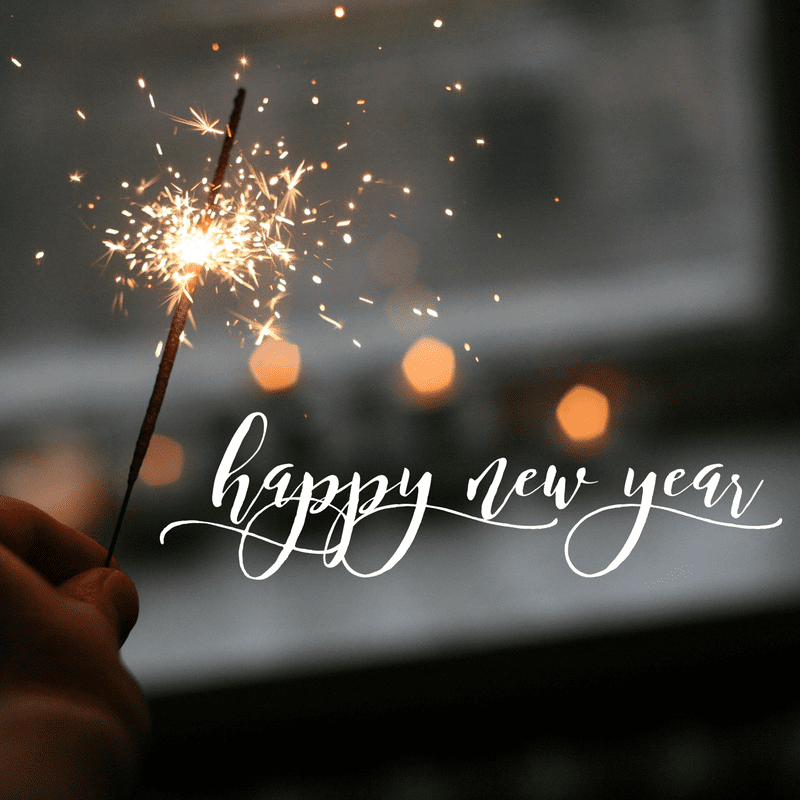 Happy New Year, from the Upside Down Podcast Crew! If you’re like us, you celebrated the coming of 2017 with a combination of the extraordinary and the mundane. And no, I won’t be telling you who did what, although I will admit that there were tiny glitter hats and a live-viewing of The Mariah Incident involved in my NYE. The turn from 2016 to 2017 feels like a big shift to me. One on hand, some great things happened personally in 2016. As I’ve reflected over the last year, I see God’s hand answering prayers, pushing us, waking us up to things we’ve been blind to, and working in our hearts to remind us that whatever we DO pours out of what we ARE - children of God. But it’s also been a difficult year. Poverty, hunger, sickness, death - too much death. These things remind us that the world we live in now is not the way it’s meant to be. At the beginning of December I spoke at a ministry event and I focused on Eve and Mary. There’s a print (seen here) that I discovered after falling in love with a Rain for Roots song called “Mary Consoles Eve.” Both are so beautiful - a picture of the beginning, the broken, and the healing that comes in Jesus. The chorus off the song says, “almost, not yet, already.” By the way, co-host Shannon got the same image tattooed on her shoulder the week of the event. We hadn’t discussed it beforehand. That was a fun surprise! In my talk, I mentioned that, in response to the brokenness that entered the world at the fall, a bunch of “alienations” happened: we see that we are alienated from God, he is alienated from us, we are alienated from each other, we are alienated from creation, and we are alienated from ourselves. But God says he’ll put enmity between the serpent and humanity. God claims us again, saying “THEY ARE STILL MINE. (WE ARE STILL HIS!) It’s us against you, Satan, and I never lose.” And then we get the promise of the rescuer. The deliverer. The King who came down! We are celebrating his birth at the beginning of this new year and we can take that out of our tree-lit living rooms and into the world. Some of us are filling out goal-setting sheets, some are overwhelmed at schedules, some are picking words of the year and some are just trying to keep all the plates spinning. No matter how we're heading into 2017, let us be a people who’s understanding of the Good News of Jesus allows us to Fight a lack of gratitude, understanding at our core that all we have is a gift to be stewarded. Fight despair and cynicism, and see the God who gives hope. Fight the blinders, and see a wider scope of the kingdom of God, who breaks down barriers to usher in a new day. Fight the boredom, to find a God who is extraordinarily adventurous an calls you to be the same. As we look back at the beginning of this podcast, we’re thankful for the ways you, our listeners, have encouraged and challenged us to do things things, and we look forward to stepping into this near year with you. Happy New Year! With love from Asheville, Kristi
We kick off this episode by naming our favorite Christmas songs: Lori kicks it old school with Chris Tomlin, Lindsy shines new light on The Little Drummer Boy, and Shannon hops down a rabbit trail on why Catholics wait so long to decorate their trees!
The conversation turns serious as we mull over the ways "joy" differs from "happiness" or "peace". We talk about the possibility of one without the other, and discuss whether circumstances can or should rob us of joy. “There are Christians whose lives seem like Lent without Easter… of course joy is not expressed the same way at all times in life… {it} adapts and changes, but it always endures, even as a flicker of light born of our personal certainty that, when everything is said and done, we are infinitely loved.” - Pope Francis, The Joy of the Gospel In true Upside Down style, we can't let a single podcast go by without talking about the marginalized and social justice. The issue of great joy for all people comes up and we mull together over the implications of that, and what our role in that is. Shannon confesses a sin of wanting to deny others their joy, and we all agree that jealousy can all too often cause us to resent the joy of our neighbor. Kayla hits the point home with a quote by Jürgen Moltmann: “Sometimes it seems to me that compassion with the suffering of others is easier than the compassion with the joy of others. We feel so good if we can have mercy with somebody else, and we feel some envy if somebody else feels joy and success.” We wrap up the show by comparing the different ways we each navigate gifts for our kids at Christmastime, and are unsurprised to find that we each have slightly different approaches. Lindsy's family is doing Legoland instead of gifts this year but shhhh, don't tell her kids! After listening, we'd love for you to leave a rating and review on iTunes! One of the best parts of this podcast experience has been interacting with listeners, so please find us on Facebook and Instagram. Tell us what you think, ask questions, and connect with others in this #upsidedowntribe. Grace and peace from Iowa (brrrrr!), Shannon
On today’s bonus episode, we’re chatting with Tyler Burns, a youth pastor from Pensacola, FL, who serves as co-host for Pass the Mic, a podcast powered by the Reformed African American Network. Lindsy Wallace interviews Tyler and co-hosts Kristi James and Lori Harris weigh in and pose relevant questions to drive the conversation towards ways that white people can come alongside their neighbors and love well.
The reality of the fall means that we live in a broken world with broken systems and the world is pushing against everything that God desires for racial reconciliation. We see evidence of this truth online and on the nightly news and in our everyday lives. The world is broken and yet, as Christ followers, we know that in Christ, we have been reconciled to God and to one another through the cross. So while we’re on this earth, how do we live as reconciled children of God and act as agents of reconciliation as Christ followers? The answer is simple: We must hold truth of scripture in one hand and the reality of our current world in the other and set wrong things right. Have you ever wondered about The Talk? You know, that conversation black parents have with their kids about how to interact with the police? Depending upon where you live, you may not even be aware that The Talk is an integral part of rearing black kids. The Talk is essentially a set of instructions for children on how to interact with law enforcement so that children can learn to navigate society with their blackness in mind. And at its root, the overarching message of The Talk is this: Don’t give the police a reason to kill you. If you’re white like me, the truth of this reality may hit you like a punch in the gut. Or it may seem silly or unnecessary. Or like a perpetuated narrative that isn’t helping the climate of America. But as Christ followers who hold the scripture in one hand and hold the broken world and her broken systems in the other, we should lay down our initial gut reaction to The Talk and listen with ears to hear the groaning of our black neighbors. And friends, The Talk is our neighbors’ groaning of injustice. So I encourage you to spend five minutes on your face before Jesus, asking Him to search your heart and reveal to you any sin hidden away, and then take a listen to our interview with Tyler Burns. Maybe listen to it twice and then check out Pass the Mic. Or spend a week searching the scriptures that Tyler references {Colossians 1, Ephesians 2, Revelations 5, 7, 9) in regards to what the Bible says about racial reconciliation. Find us on Instagram or Facebook and join the conversation. Grace + peace, Lori Never Miss an Episode: Subscribe to our newsletter. Episode 06 - Loneliness in the Kingdom of God: Unscripted Conversations on Life and Faith12/6/2016 In this episode, we're diving deep into loneliness in the Christian life. Inspired by listeners reaching out, we ask the question: Why is it easy to feel lonely in this Kingdom of now and not yet? We hear you when you say you've experienced deep loneliness in your walk with Christ. In your relationships. In your ministries. In your parenting journeys. We hear you when you say you've wrestled as a discple of Christ trying to be obedient to God's Upside Down Kingdom while surrounded by lack of likeminded community or family. Even in this advent season, pangs of loneliness bubble to the surface, too. I'm grateful to have lead this conversation on loneliness in this faith journey. It's heavy and rich and there's a lot to unpack -- but wow. As Lindsy says, following Jesus isn't popular. Even among other believers. In times of isolation, we have a desire to tell ourselves "it's going to get better." But it's not necessarily true this side of Heaven. We're promised Christ, yes, and we have the Ultimate Hope: but being a Christ follower is accepting some degree of loneliness. In "The Cost of Discipleship” by Deitrich Bonhoeffer, (on page 105 if you're reading along!) he talks about “discipleship and the individual”: "Through the call of Jesus men become individuals. Willy-nilly, they are compelled to decide, and that decision can only be made by themselves. It is no choice of their own that makes them individuals: it is Christ who makes them individuals by calling them. Every man is called separately, and must follow alone. But men are frightened of solitude, and they try to protect themselves from it by merging themselves in the society of their fellow men and in their material environment. They become suddenly aware of their responsibilities and duties, and are loath to part with them. But all this is only a cloak to protect them from having to make a decision. They are unwilling to stand alone before Jesus and to be compelled to decide with their eyes fixed on him alone. Yet neither father nor mother, neither wife nor child, neither nationality nor tradition, can protect a man at the moment of his call. It is Christ’s will that he should be this isolation, and that he should fix his eyes solely upon him." Bonhoeffer asserts this idea that we have to lose to gain: Specifically, that we have to lose some aspect of community before we can -- through Christ -- have redeemed relationships. He says that relationships before Christ weren’t fully relationships -- only through Him can we have true, authentic relationship. As Lori mentioned, if we only experience Christ in community, things become muddled. Do we idolize community? Are we finding our identity in our community? What happens when we cut the noise and seek the Solus Christus life? Maybe in the in-between, there's sancification. And maybe that's lonely. And maybe that's okay. We have to take responisbility to follow him where he wants us to go, even if it's lonely. Maybe periods of isolation -- of stripping bare -- are what God can use before He launches us into something big. Listen and go forth, sons and daughters of the King: Take a breath and take Lindy's advice of preaching the Gospel to yourself, returning to the Cross and becoming whole -- even in the midst of the painful -- yet holy -- periods of isolation. I'll leave you with Lori's words: "There's abundant life in the hard. Because it's Christ. He's in the hard place." We want to hear from you: What stood out to you in our conversation? What have you learned about God in your seasons of isloation? Find us on Instagram or Facebook and join the conversation. Grace + peace from wintery Iowa, Kayla Never Miss an Episode: Subscribe to our newsletter.
“Love is the final fight -- but it’s worth fighting for.”
This episode is a special one, friends. When Dr. John M. Perkins -- truly a living legend -- came to our little corner of Iowa to speak at Dordt College, I knew I had to do everything I could to get there and listen to him speak. At 86 years old, his life's work and ministry has been nothing short of amazing. Dr. Perkins was born into Mississippi poverty, the son of a sharecropper. His outspoken support and leadership role in civil rights demonstrations resulted in repeated harassment, imprisonment, and beatings. He is one of the leading Christian voices to come out of the American civil rights movement. He is also an internationally known author, speaker, and teacher on issues of racial reconciliation and Christian community development. So there I was, set to get babysitters lined up to attend his teachings. And then I got this crazy idea: Wouldn't it be incredible to interview him? And God threw open the doors and my friend Liz, managing editor of In All Things, a publication of Dordt, allowed me to sit down with Dr. Perkins. Let me be clear: It was a half hour I will never, ever forget. I felt like he looked at me and actually saw me. He exuded God's love with humility and compassion -- and so much faithful, faithful reverence. Here was this man who has seen and heard and experienced and served more than I can even begin to fathom, and yet he was wholly present with me. His eye contact never wavered: he saw me as an Image Bearer, a true sister in Christ. He told me that we all need to know that we are broken. And that reconciliation is rooted in Gospel love. We talked about how justice really comes down to stewardship -- about living a language of love. (I know my co-hosts wished they could have joined me!) While Upside Down isn't an interview-based podcast, this conversation with Dr. Perkins is a special gift. Listen and soak up his words -- they are meaningful -- almost prophetic -- as we try to live as Kingdom-dwellers today in our tumultuous nation. With only a third grade education, Dr. Perkins has received honorary doctorates from multiple universities. He has guest lectured at Stanford, Harvard, Oxford, and countless other prestigious universities. It's incredibly powerful to hear him reflect on his 86 years. On his regrets, his joys, and his hope for the Church he loves so deeply. He has lived through brutal beatings, systemic injustice, and hateful racism. And yet, he is nothing but humble and generous. In a nation that seems like it's shattering, his words gave me perspective and hope. My favorite moment was when I asked Dr. Perkins what prayer he has been praying lately. He took off his glasses, closed his eyes, bowed his head and raised his voice: "I need thee, John Perkins need thee. Every hour I need thee. I think of these thorns in the flesh, these patterns I broke up, these culture patterns that tell me I ought to hate you for what you’ve done to me. It’s really me trying to live this love, also trying to understand that suffering for others becomes vicarious and redemptive." I'm working on a more reflective church + culture piece for In All Things based on what Dr. Perkins has taught us, but I'll leave you with a couple excerpts from our conversation. I've already listened to our conversation a dozen times, and I know it'll be a staple to return to when my heart is weary. And what a gift that I can tell my children, "John Perkins told me..." I know this episode will make you think, and will leave you with a lighter heart. Grace + peace from Iowa, Kayla Quotes to think on from this episode with Dr. John M. Perkins: "People are looking better to me. People are looking beautiful. I feel like I’m winning when I’m speaking to somebody who is different than me. I feel like I’m winning when I’m being kind to somebody who is different than me." “My job is to try to reflect Jesus and hope they find some reflection -- a little bit -- in the way I try to live.” "Believers become a friend of God. The mission is to know God, know ourselves, and make Him known." “My prayer is: Give me joy in love. Give me joy in pain. Let me find the joy in my struggle in obedience to God. Let me find it in my fears - I have fears. So I need God. And I turn to the Psalms, David has so many psalms. He committed such an evil sin, but he felt the scars from it. I’ve been forgiven, but I feel the scars of my sin, of the sins against me. But I don’t want to be a victim, I want to be redemptive.” "Justice is a stewardship management issue. Justice is how we use the economy that belongs to God, how we use that to help elevate those who are in poverty." "The gospel’s message is to bring Jew and gentile, black and white, together in one body, and then live that out in love. That’s the gospel." "I think we need others in our lives. St Francis had it right: Love is a gift you receive." "What is our vision of Jesus? Is our vision of him a racist? A Bigot? Or do we see others bear his image, his likeness?" "Your interest is my well-being ... In your progress and success, we all succeed together." "I think we’re in a good place. I don’t want to just go around with the rest of my life beating people over the head. I want to go around thanking God for where He’s brought me from as a third grade dropout, where he has brought me to. I want to thank him for that and I want to try to love somebody. And people are matching me with that. I could tell stories about that. When you start playing the game of love, people want to play it with you.” Further Reading:
Happy Election Day, Americans! It feels a little ominous to release ANYTHING today, but if we have to, this episode's topic, RADICAL HOSPITALITY, is a great, refreshing option.
In this episode we talk through what hospitality is, what it isn't, and what we mean when we add the word radical in front. What if radical hospitality isn't big and crazy, what if it's simply rooted? Does that change what each of us are capable of? I love Lori's definition of hospitality as a posture - "Hospitality is the posture that my heart takes when it is bent toward others, when it is bent toward receiving them in the condition that they are, and in the condition that I'm in." Speaking of the condition we're in, INTROVERTS - we asked what it looks like to be hospitable and NOT an extrovert. Some of the most hospitable people I know are introverts - including several of the women on this podcast. Shannon has some great things to say about finding a balance between being who you are, and pushing yourself in love for the sake of others. In the end, we share a few of our favorite ways to feed people, including this Sopapilla Cheesecake recipe someone brought to Kayla's book club recently: Sopapilla Cheesecake: 2 cans crescent rolls 2 boxes cream cheese 1 tsp vanilla 1 1/2 cups white sugar 1/2 stick unsalted butter, melted 1 tsp cinnamon Place on can of crescent rolls in the bottom of a 9x13 dish. Mix the cream cheese, and 1 cup of sugar in a bowl, and spread on top of the crescent rolls. Layer the remaining can of rolls over the mixture. Cover with melted butter. Mix remaining sugar and cinnamon together and sprinkle on top. Bake at 350 for 35 minutes. Suddenly I find myself wanting to fly to Iowa for book club. And finally, if you find today totally intolerable and are looking to escape the US for a few days pending election results, we share which passport stamp we'd want to get if we left tomorrow. Kayla even took a quiz on the matter and let's just say her results, combined with her husbands, were a little concerning. Meanwhile I'm hightailing it to France because baguettes, man. After listening, we'd love for you to leave a rating and review! One of the best parts of this podcast experience has been interacting with listeners, so please find us on Facebook and Instagram. Tell us what you think, ask questions, and connect with others in this #upsidedowntribe. With love from Asheville, Kristi
In this special bonus episode of Upside Down, Kayla, Shannon and I (Lindsy) discuss adoption. In honor of National Adoption Month, we answer some pre-adoption FAQ's about foster care, domestic, special needs, and international adoption.
With over 100,000 children waiting to be adopted in the United States alone, the need is very real, and the scriptural command to care for vulnerable children is clear. But where to start? We hope this episode is the first few step in determining if adoption is right for your family, and if so, how to begin! LINKS:
The topic of adoption ethics could be it's own episode; heck it could be it's own podcast. While we didn't explicitly address it in this episode, as a starting point, I want to send you over to read Jen Hatmaker's three part series on this issue on her blog: Part One, Part Two, Part Three. BOOKS:
Do you have pre-adoption questions we didn't answer in this episode? Find us on Instagram or Facebook and join the conversation! (Don't worry, a post-adoption episode is in the future!) As always, thanks for joining us and being part of our #upsidedowntribe! With Love from Miami, Lindsy Never Miss an Episode: Subscribe to our newsletter. |
SHOW NOTESCheck out links & details to what we've talked about in every episode! ARCHIVES
September 2017
CATEGORIES |
About |
Join Us |
© COPYRIGHT 2015. ALL RIGHTS RESERVED.
|


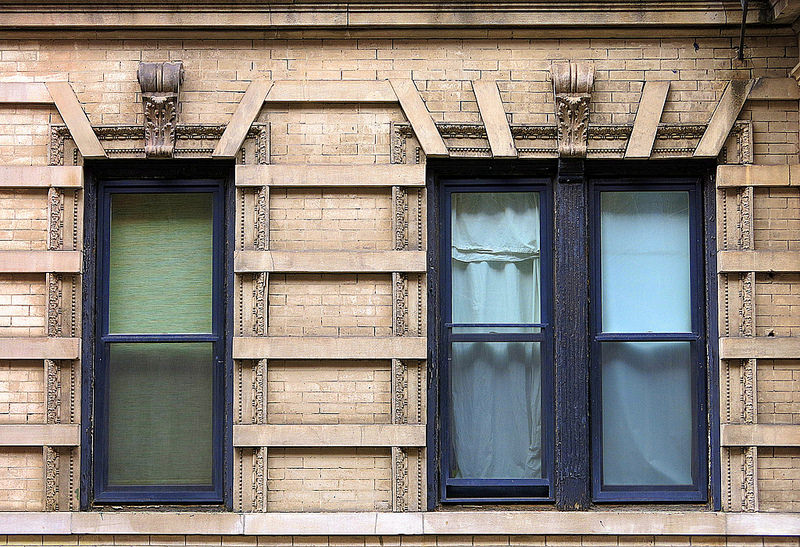
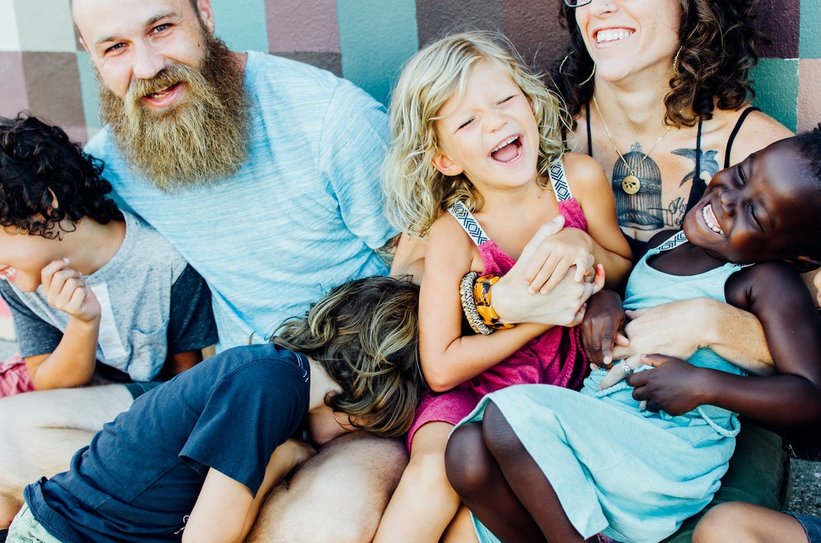
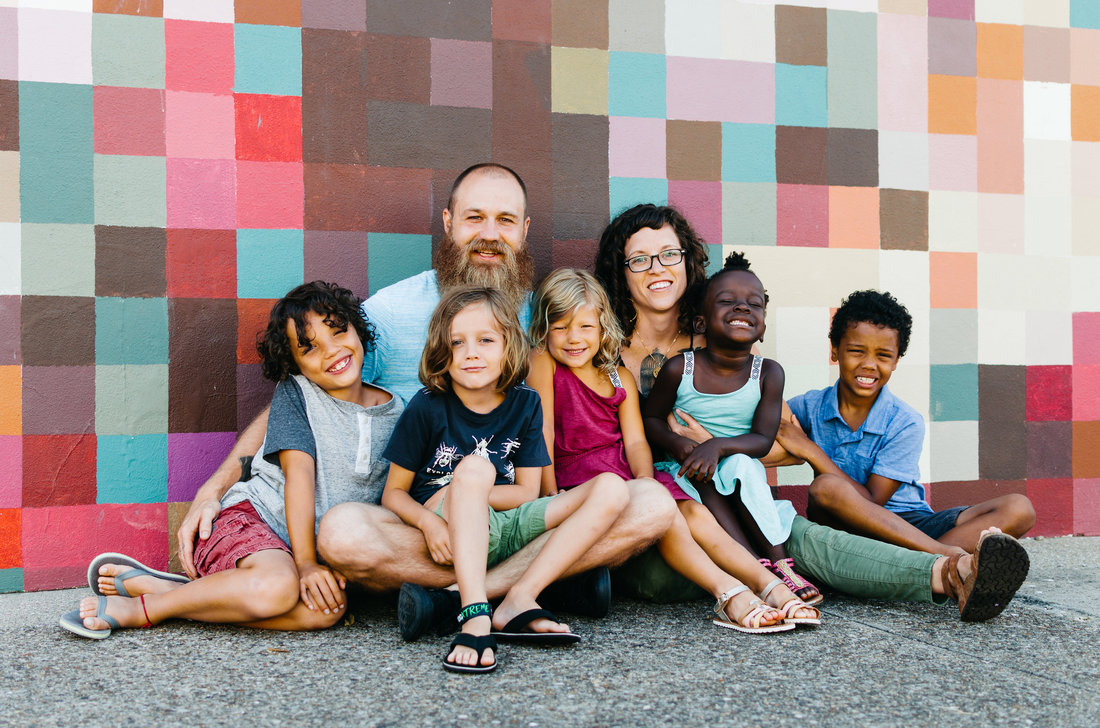
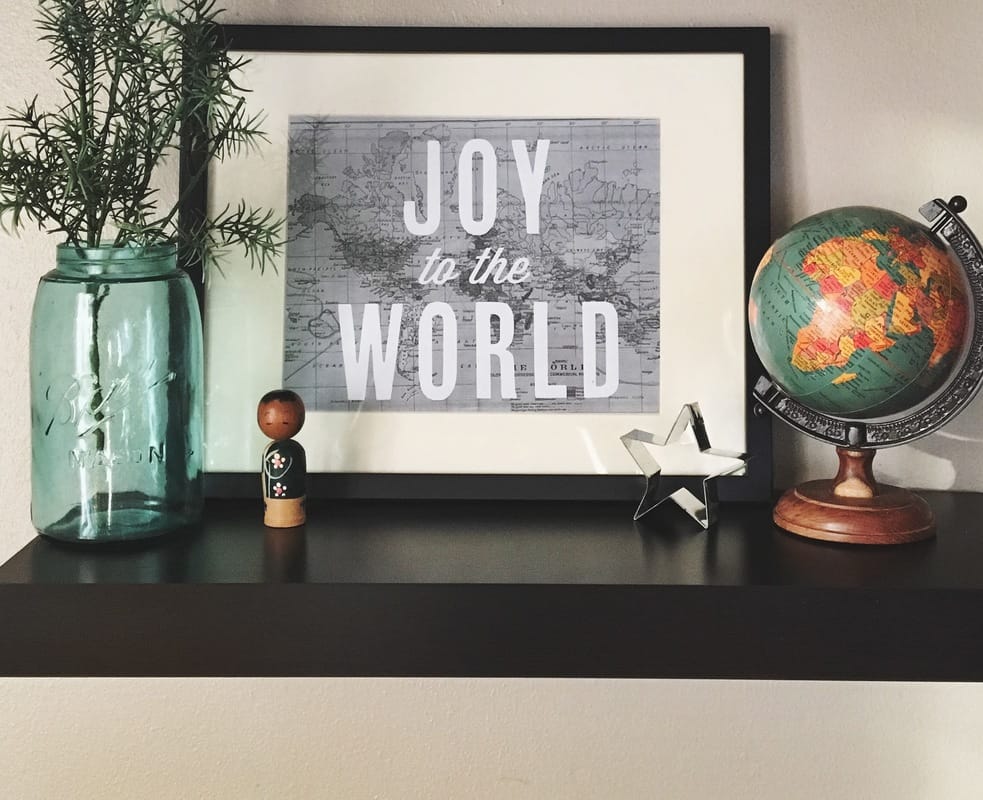
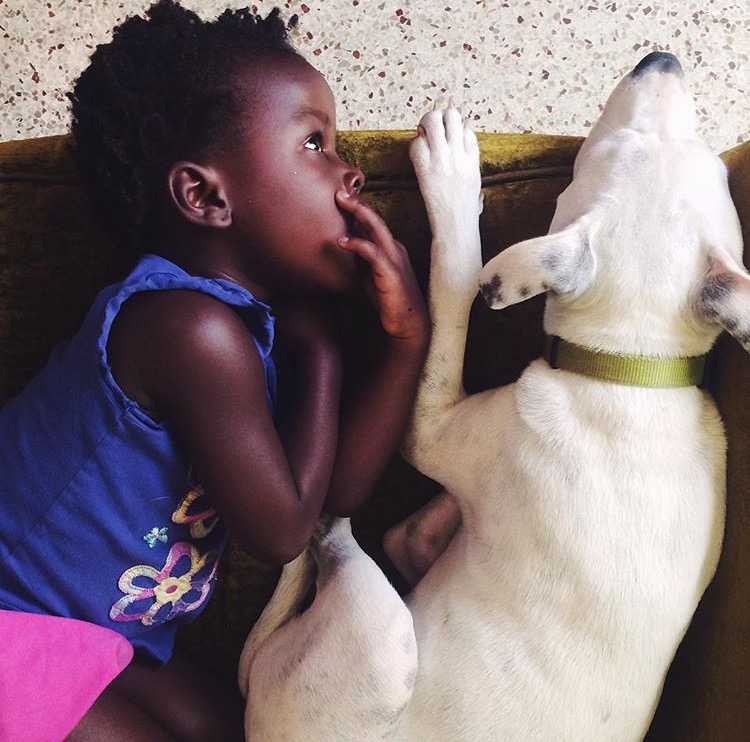


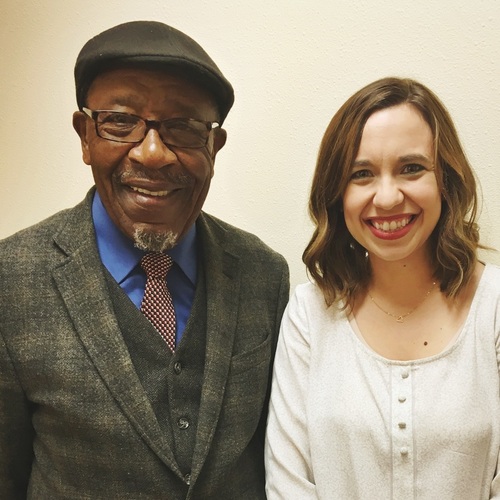
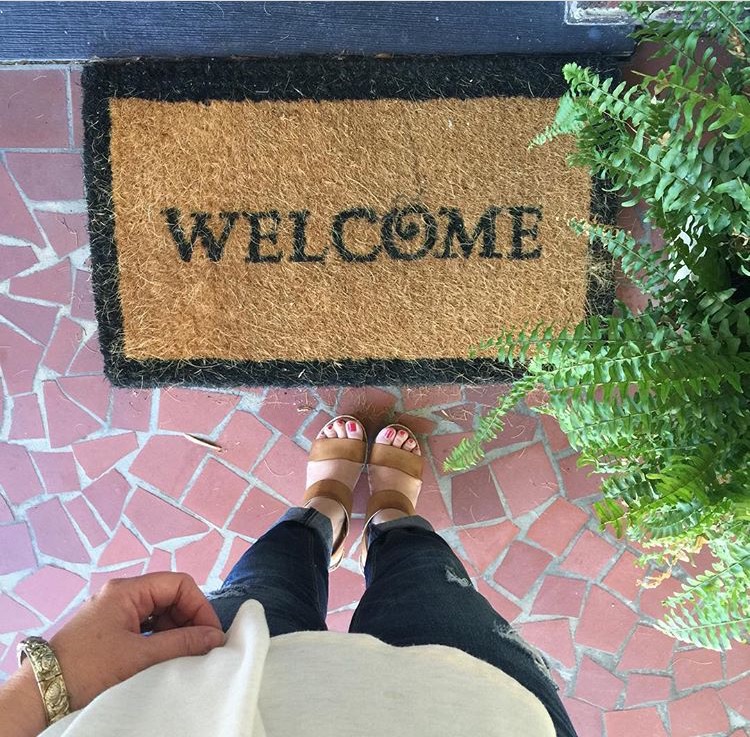
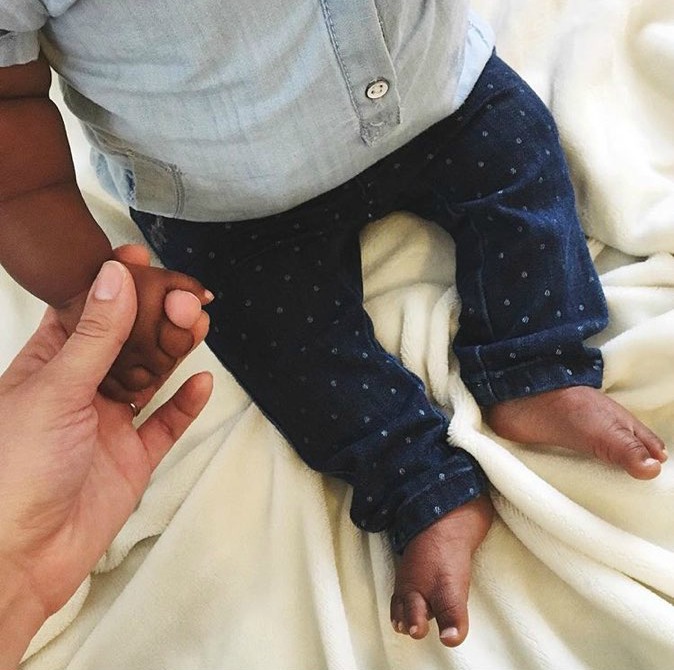
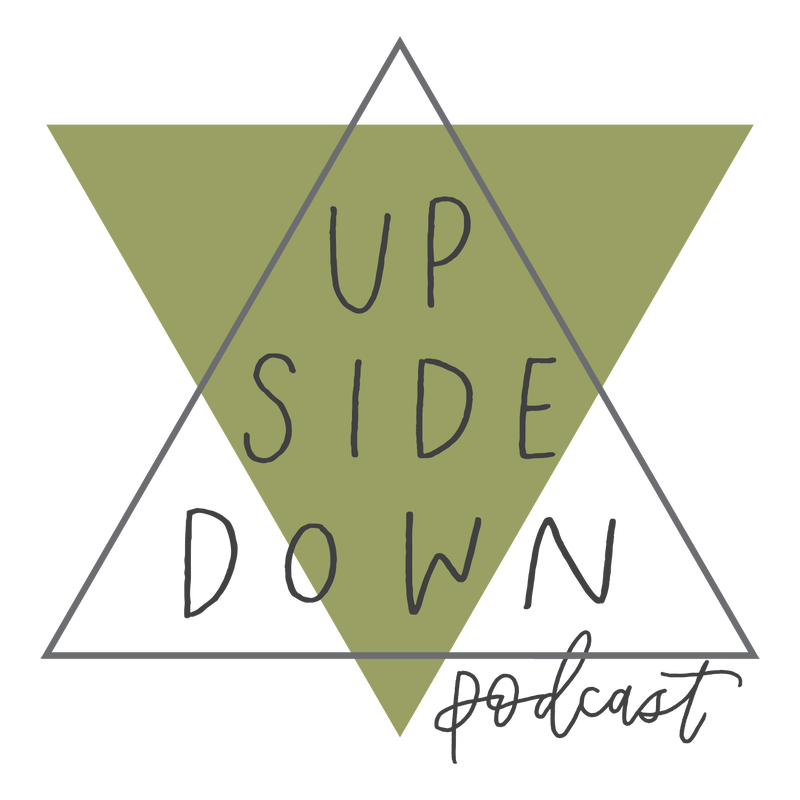
 RSS Feed
RSS Feed